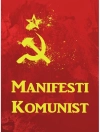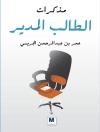The marine environment is an abundant source of organisms which are rich in functional/bioactive compounds. Many of these compounds exhibit a remarkable potential for medical, industrial and biotechnological applications. Handled appropriately, with a focus on sustainability, these organisms and compounds can offer new and renewable feedstocks for a variety of industries. The biomass from marine organisms also offers opportunities for clean and sustainable fuel generation, carbon sequestration and wastewater remediation.
Focusing on the use of biomass from marine algae (both macro and micro), bacteria and yeasts this book looks at opportunities for producing high value chemicals with applications across multiple industries. It is an essential read for researchers interested in innovative, green feedstock sources, sustainability and the circular economy.
Jadual kandungan
- Biofuel Production from Seaweed: A Green Alternative for a Sustainable Future
- Applications of Marine Resources for Generation of Green Energy: A Step Towards Attaining Sustainable Development
- Harnessing Diatoms: A Comprehensive Exploration of Their Role in Wastewater Treatment, Biomass Utilization, and Nanotechnological Applications
- Unveiling a Game-changer in the Net-zero Race: Marine Seaweeds for Sustainable Macrofuel Generation
- The Use of Marine Biomass in Biofertiliser and Biostimulant Production: Current Status and Future Perspectives
- Recent Advances in Marine Microalgae Production: Highlighting Human Health Products from Microalgae
- Current Prospects of Indian Seaweed and Its Value-added Products
- Towards a Macroalgal Biorefinery via Integrative Production of Bioactive Compounds, Caloric Gas and Carbon-based Porous Materials
- Marine Macroalgae: Sustainable Practices and Environmental Impact
Mengenai Pengarang
Dr. Riti Thapar Kapoor is Associate Professor in Centre for Plant and Environmental Biotechnology, Amity Institute of Biotechnology, Amity University Uttar Pradesh, Noida, India. Dr. Kapoor received her Ph.D from University of Allahabad and worked as post – doctoral fellow at Banaras Hindu University, Varanasi, India. Dr. Kapoor has fifteen years of teaching and research experience and her area of specialization is environmental biotechnology, bioremediation, wastewater treatment and abiotic stresses. She has supervised and mentored a number of research projects sanctioned by different government funding agencies such as DAE, DST and UPCST etc.
Dr. Mika Sillanpää’s research work centres on chemical treatment in environmental engineering and environmental monitoring and analysis. His recent research focus has been on resource recovery from waste streams. Sillanpää received his M.Sc. (Eng.) and D. Sc. (Eng.) degrees from the Aalto University where he also completed an MBA degree in 2013. Since 2000, he has been a full professor/adjunct professor at the University of Oulu, the University of Eastern Finland, the LUT University, the University of Eastern Finland and the University of Johannesburg.
Dr. Mohd Rafatullah currently works as an Associate Professor of Environmental Technology in the School of Industrial Technology, Universiti Sains Malaysia (USM), Malaysia. He joined this School in 2008 as a Post Doctoral Fellow. He earned his Ph. D. in Environmental Chemistry, Master of Science in Analytical Chemistry and Bachelor of Science in Chemistry from Aligarh Muslim University (AMU), India. His research interest is in the areas of environmental water pollutants and their safe removal; preparation of various nanomaterials to protect the environment; water and wastewater treatment; adsorption and ion exchange; microbial fuel cells; advance oxidation process; activated carbons and their electrochemical properties.












